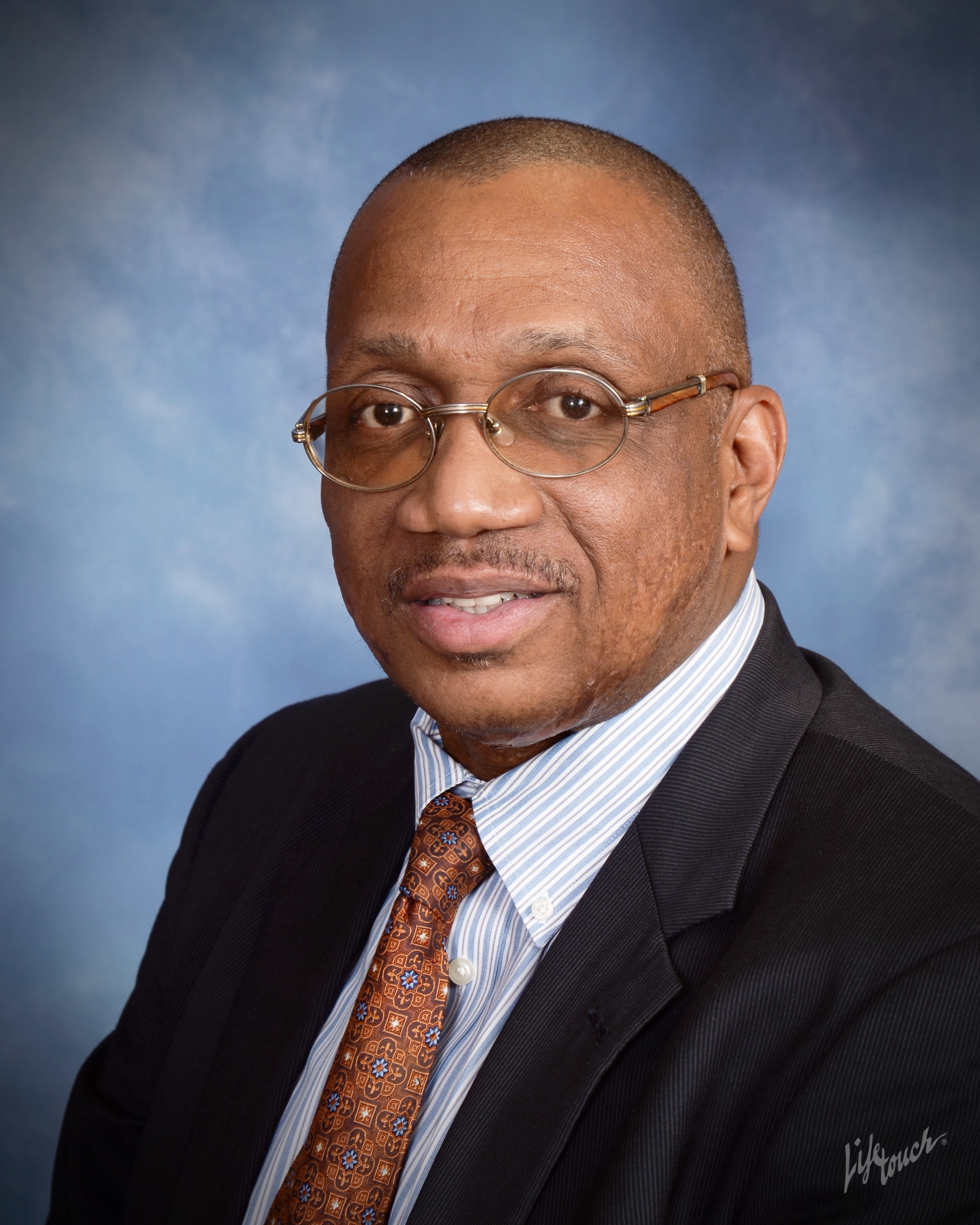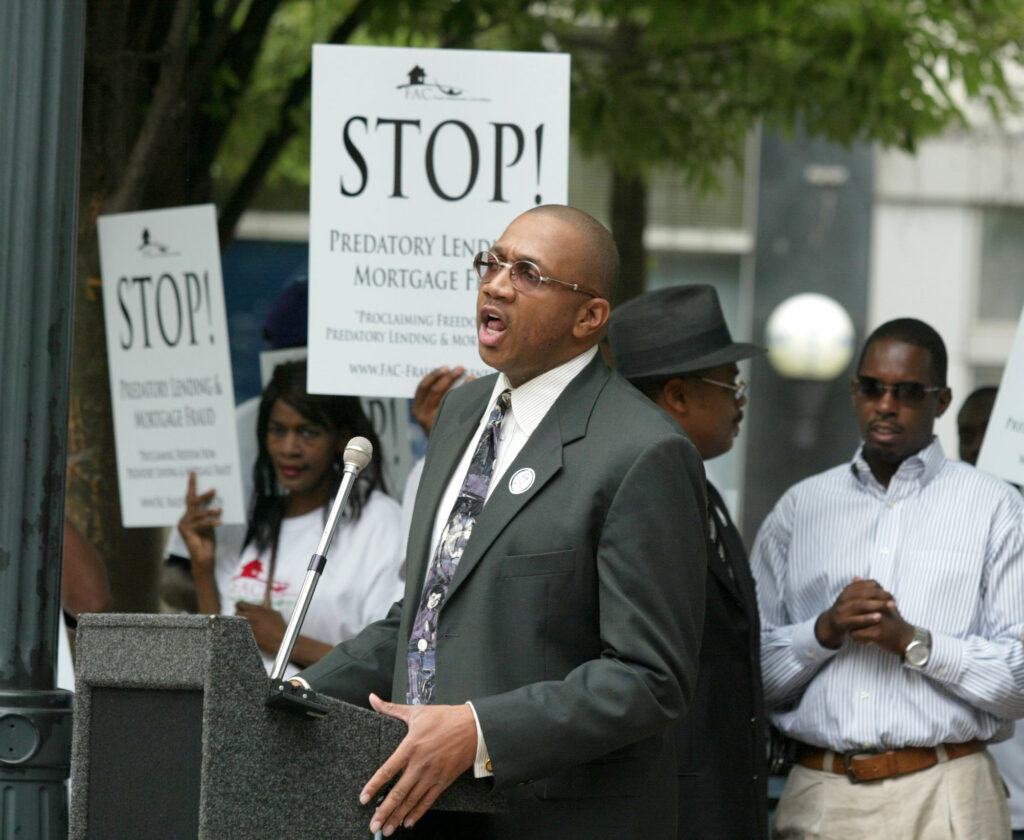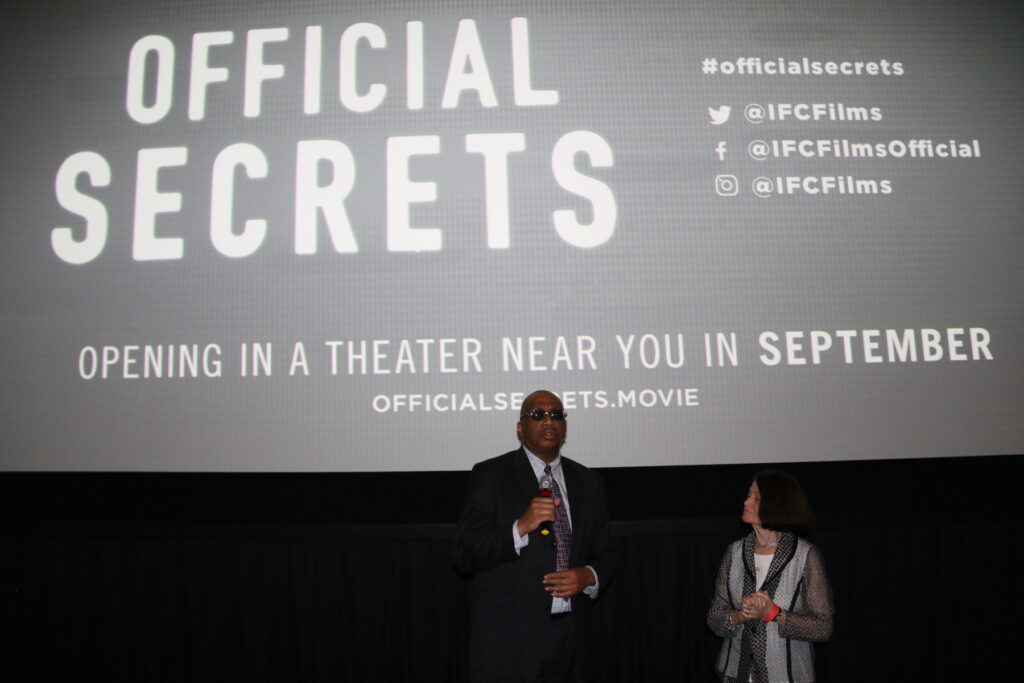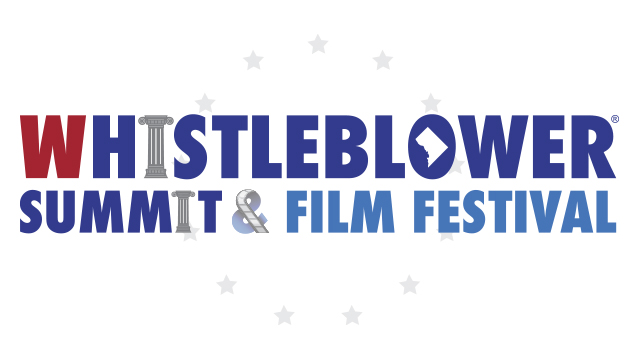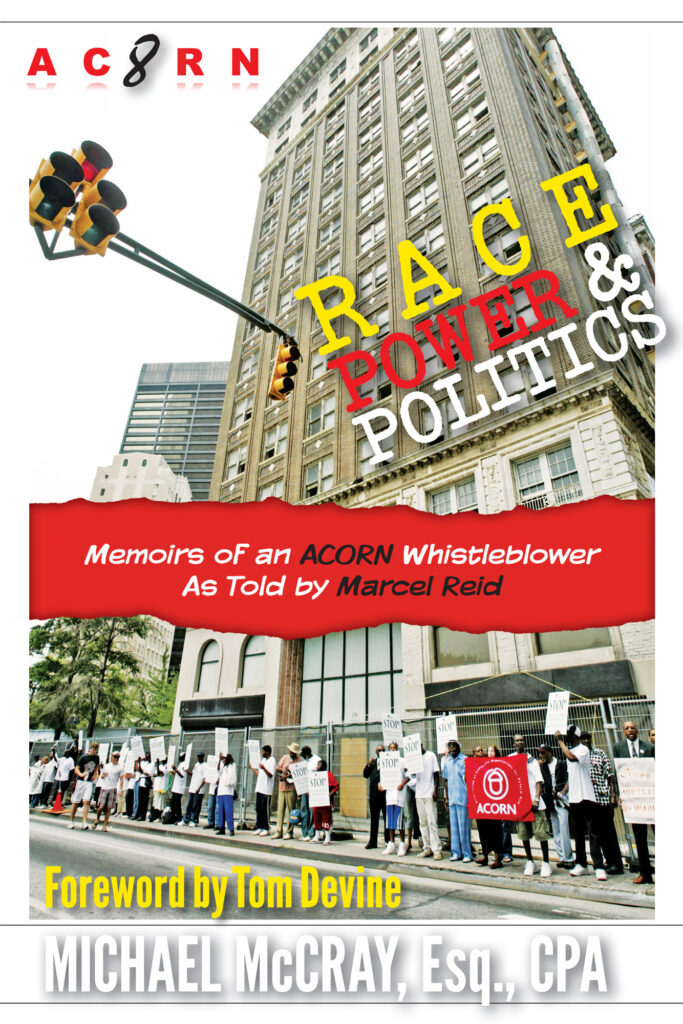Michael grew up in the Arkansas River Delta where the soil is rich—but the people are poor. His hometown was ranked the worst place to live in America… two years in a row. Despite the challenges, he earned a MBA in Finance from Howard University and law degree from Georgetown Law, a funny thing happened on his way to Wall Street—his Governor ran for President and I got to work for the White House. Ultimately, he blew the whistle on $40 million dollars of waste, fraud and abuse during the Clinton Administration. Michael became a federal whistleblower… and that changed his life forever.
FMM: Your hometown in the Arkansas River Delta was ranked as the worst place to live in America. How did you pull yourself out of the trenches?
I come from a family of scholars and educators; therefore, education was the key for me to rise above my circumstances. I was an all-conference student-athlete in high school, but my chance to escape my environment came when I became a national merit semi-finalist and accepted a scholarship to Florida A&M University in the famed School of Business Industry. Attending an HBCU got me out of Arkansas but matriculating through Georgetown University Law got me to Washington, DC.
FMM: What does life look for people who live on soil that is rich and the people are poor?
Some of the wealthiest people and corporations live in Arkansas, e.g., Walmart, Tyson’s, J.B. Hunt, Stephens Investments – yet most of our residents are poor or working class. Life is tough for people who live where I grew up. We have high poverty rates, high obesity rates, and violent crime. My town has earned the moniker of “Crime Bluff.” Some of the highest tax rates in the state, yet the residents receive poor service levels. We have poor and failing schools, which impacts our economy. Every family in my hometown qualifies for free or reduced lunches. We are working hard to change these conditions.
FMM: Tell us about your background.
My hometown was dirt poor, but I grew up middle class. Both my parents were educators, and they valued order and integrity. I went on to law school (Georgetown), got an MBA in Finance (Howard), and earned my CPA. As a result, I became a very rules-based, oriented person—who wanted to use my education in the realm of Corporate Finance. But a funny thing happened on my way to Wall Street; I became involved in national politics when my Governor ran for President—and won. As a result, I got an opportunity to use my education working not on Wall Street but instead on a White House Economic Development Initiative for the Clinton Administration called the Federal Empowerment Zones Program which was designed to revitalize poor, under-served and impoverished communities across America.
I had landed my dream job. I had the opportunity to travel across the country rebuilding impoverished communities—just like my hometown. I was raised in the worst place to live in America, and I had just been given the keys to the White House. However, it never dawned on me that this opportunity would be so fleeting. Ultimately, I blew the whistle on $40 million dollars of waste, fraud and abuse during the Clinton Administration. I became a federal whistleblower, and that changed my life forever.
FMM: Tell us about your dream being shattered.
My dream was shattered when I discovered that $40 million dollars was being mismanaged and wasted; money that was supposed to help rebuild impoverished communities, like my hometown. I reported the malfeasance to my supervisor, the Office of Inspector General and also to the President’s Initiative on Race. In that instant, I became persona non-gratis at the U.S. Department of Agriculture. I was stripped of my duties and assignments, I was barred from attending any further White House Empowerment Conferences and, I was subjected to severe workplace bullying and intimidation.
“Most people don’t realize that you never blow the whistle by yourself—when you blow the whistle, your whole family blows the whistle. The devastation of your personal and professional life can be unbearable for fragile minds.”
FMM: Tell us about the harassment and retaliation as a result of being a whistleblower.
The severe retaliation and harassment resulted in my complete financial devastation: I lost my job and was blacklisted from subsequent employment. I lost my home to foreclosure and I even lost investment property and other small business interests. But the most devastating loss was when I ultimately lost my fiancé—and was forced to return back to Arkansas. I was crushed. The stigma and shame was almost unbearable. Everyone knew me, and had high hopes for my success. I was so depressed I didn’t want to go outside; I didn’t want to go to church or to my high-school reunions. I felt like a complete failure. In that condition, looking for reasons to live was far too ambitious. In my state of mind, I was simply trying to find a single reason not to die—today. Except, when I was very young, my grandfather pierced his temple with a .22 magnum and it damned near killed my father. So the only reason I found, on that day, not to end it all was that my grandfather had killed himself. And, if I committed suicide—it would absolutely destroy my Dad, if both his father and his son both died by their own hands. That’s when I knew I had hit rock bottom.
FMM: Upon reflection, is there anything you would have done differently?
There are a lot of things I would have done differently. I have learned so many things on this journey. First, I was naïve about corruption within the inner workings of our government, including administrative processes, courts, judges and government attorneys. Second, I would built more alliances earlier and done more research. For instance, I would have attended the Whistleblower Summit in Washington, DC and read the Corporate Whistleblowers Survival Guide (by Tom Devine) and the Whistleblowers Handbook (by Stephen Kohen). You don’t know what you don’t know, but I would have waged a much smarter campaign.
FMM: Where does the healing process and transformation begin?
My healing process began with community and purpose. Two things ultimately saved my life and my sanity. First, I received a copy of Rick Warren’s book “The Purpose Driven Life” from my Dad for Christmas. I can’t express how important this book was to me. It taught me that all my pain, all my suffering and all of my heartbreak were for a greater and higher purpose. I discovered that people can endure nearly endless pain, endless suffering—if we only have a reason. Second, I attended a gathering of whistleblowers in Washington, DC that was featured in the New York Times in March 2007. This was the first time I felt connected to a group of people who actually understood what I was going through. I was no longer isolated by myself, and I found a new place in society—no matter how small. I found my purpose in life, and it gave me a reason to live. Together we created a community of whistleblowers and advocates that provides mutual support and a place to belong. And now my mission is to advocate for whistleblowers, journalists, and whistleblower protections. To paraphrase my favorite Martin Luther King, Jr. quote. We all can’t be rich. Not everybody can be famous. But anyone can be great – because everyone can serve. I believe that selflessness and civic activism are where the healing process and transformation truly begin.
FMM: Who were you then? Who are you now?
I was poised to be successful in politics and finance, a Georgetown educated lawyer with White House connections and experience in new technology at the start of the tech bubble. Blowing the whistle was effectively career suicide. I was blackballed from federal service and eventually forced out of Washington, DC. Today, I’m a renascence man: public interest advocate, author, speaker, filmmaker and an award-winning live event host.
FMM: Tell us about the Whistleblower Summit & Film Festival.
The Whistleblower Summit & Film Festival will be held from July 23 through August 1. The Whistleblower Summit is always anchored on the week of July 30, which is National Whistleblower Appreciation Day. This day celebrates the passage of the first whistleblower law by the Continental Congress in 1778. We convened the first Whistleblower Summit for Civil & Human Rights in 2011 it was designed to recognize the contributions of women and minority whistleblowers. Additionally, the Whistleblower Summit recognizes that cinema is a powerful medium for highlighting civil and human rights violations across the globe. It seeks to shine a light on stories of courage and perseverance in the face of injustice and to encourage individuals to stand together to achieve human rights for all. We present films about whistleblowers, the First Amendment or that touch on one or several human rights issues that are connected to our areas of work, which includes freedom of expression, women’s rights, discrimination, communal violence, human rights defenders, among other issues. The Whistleblower Summit & Film Festival recently presented a posthumous award honoring John Singleton; not for his talent as a filmmaker, but for his activism standing up to racism in Hollywood. Singleton was awarded The Gladys Louise Smith Award given to honor the memory of United Artist co-founder “Mary Pickford.”
The Whistleblower Summit for Civil and Human Rights is the largest and most prestigious whistleblower conference on Capitol Hill. We highlight the important advocacy that whistleblowers and non-traditional organizations have contributed to society, including contributions to the Civil Rights and Human Rights movements. The Whistleblower Summit is unique because it combines legislative advocacy, public policy discussions with community and social events, including a film festival. During the summit, we have panel discussions, press conferences, award presentations, receptions, luncheon/dinner, book signings, etc. We have formed an unlikely community of whistleblowers and activists. We are the largest gathering of whistleblowers and advocates in the country if not the world. Unfortunately, due to COVID-19 restrictions, we will have a virtual presentation of the summit this year. We look forward to returning to live events on Capitol Hill by next year.
FMM: What are key areas of discussion for the upcoming summit?
We are still accepting panel submissions for this year’s event, the theme for this year’s Whistleblower Summit is—saluting the 50th anniversary of the Pentagon Papers and investigative journalism. We are excited about the panel discussions on free speech, journalism and the First Amendment at the summit this year.
FMM: “Whistleblowers take care of people and society… but who takes care of them? Can you answer this question?
Most people don’t realize that you never blow the whistle by yourself—when you blow the whistle, your whole family blows the whistle. The devastation of your personal and professional life can be unbearable for fragile minds. But some people are fragile like a flower, and some people are fragile like a bomb. Many people fall into alcoholism, addiction and depression—10% of whistleblowers commit suicide. We created the Whistleblower Summit to provide a sense of community and mutual support. The summit is a safe place for whistleblowers and advocates.
FMM: Tell us about your book, Race, Power, and Politics. What is your mission for your book?
As a result of my whistleblowing experience, other whistleblowers seek my counsel for support and advice. One example was when Marcel Reid reported a multi-million embezzlement at the Association of Community Organizations for Reform Now (ACORN). I became the national spokesmen for the ACORN 8, which is a watchdog group of former board members who fought to reform ACORN. As a result, ACORN became the hottest story in the country following the 2008 Presidential cycle, dominating new sites, blog sites, and the conservative press. I wrote a book that provides an inside account of their journey. The book is available at Amazon.com and everywhere books are sold. Marcel Reid and I were recently nominated for the Cliff Robertson Sentinel Award from the Association of Certified Fraud Examiners (ACFE) for our work with the ACORN 8. Marcel and I went on to create the Whistleblower Summit & Film Festival.
FMM: You serve on many boards. Tell us about the Federal Employed Women Legal Education Fund (FEW-LEF). Share the great work of this organization and other organizations you are actively involved in.
The Federal Employed Women Legal Education Fund is the sister organization to Federal Employed Women. Since 1977, FEW-LEF has provided counseling, training, representation and support for women and minority workers in the federal sector. As a formal federal worker, I am keenly aware and sensitive to the plight and needs of federal workers. As General Counsel, I advise FEW-LEF and provide guidance and support for this venerable organization. FEW-LEF has provided support to federal workers, whistleblower and the Whistleblower Summit & Film Festival.

